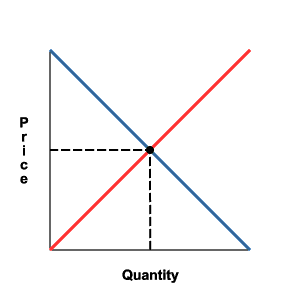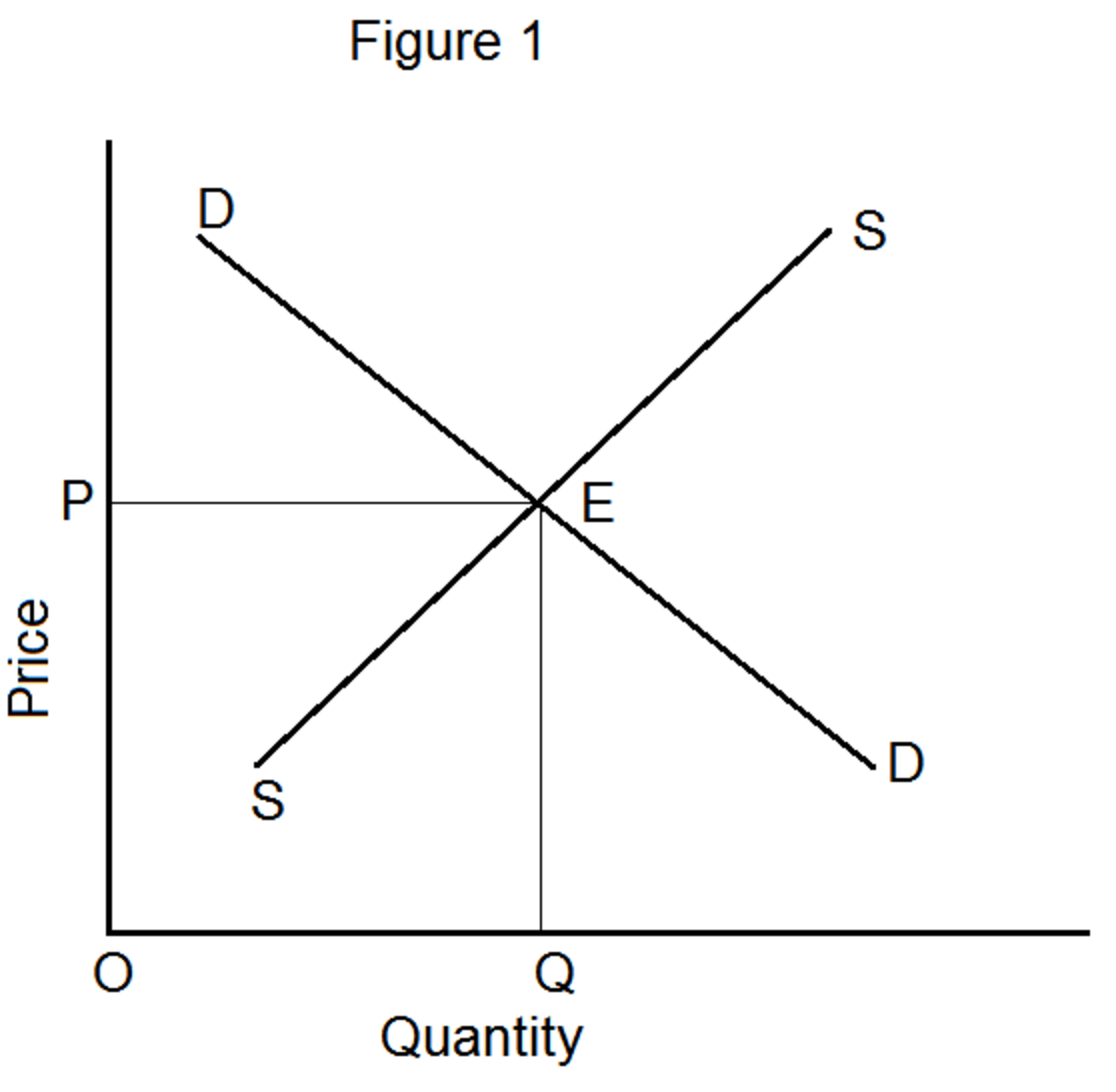Understanding Real Estate Demand and Supply for Buyers and Sellers

I am a licensed REALTOR® since 1989. Although I am currently licensed, I am retired from active sales. Still, past clients call me for information, so I keep abreast of the real estate market and trending conditions. Since my first day in the real estate business, one of the first things I explain to clients is the concept of demand and supply. Whether you are a buyer or a seller, this concept is important to understand at the time you wish to buy or sell your home.
Demand and Supply
In the real estate industry, there is a relationship between the number of houses that are available for sale and the number of buyers who are able to buy. That’s the simple definition. The type of homes available and the price of the available homes also are important factors.
Demand-Supply Chart

Basic Law of Demand and Supply
HIGH demand = LOW prices. This scenario is most advantageous to buyers.
LOW demand = HIGH prices. This scenario is most advantageous to sellers.
Know Your Real Estate Market
When buying a home, consider whether you are buying a home in a high priced market (also known as a seller's market) or a low priced market (also known as a buyer's market).
Seller's Market and Buyer's Market
Seller's Market
| Buyer's Market
|
|---|---|
When the demand for properties in an area is high AND when there is a shortage of desirable properties on the market to sell, then this is referred to as a seller’s market.
| When the demand for properties in an area is low AND there is an over-abundance of properties on the market, then this is referred to as a buyer’s market.
|
When supply is low, prices are high. When supply is high, prices are low.
High Supply Low Demand
In this analogy, we see that there is an abundance of apples. In fact, there are more apples than buyers. This is an example of high supply and low demand. Buyers reap the benefit of lower prices. This is a buyer’s market because the buyers are reaping the benefit of lower prices.
Buyer's Market Analogy
To help understand the concept of a buyer’s market, I share the following analogy. The assumption is that all of the products being sold are in desirable condition.
Suppose you go to the grocery store and see two bins of apples. Both bins of apples are identical in shape and quality. One bin of apples is priced at $1.00 and the other bin of apples is priced at $1.50. From which bin of apples would you buy? Of course! You would buy from the bin of apples that is priced at $1.00. When there are multiple products of the same quality and desirability, the product that is priced higher will sit on the market longer.
The result of over-pricing: The vendor selling the apples at $1.50 will (most likely) only sell his apples after all the apples priced at $1.00 are gone. By then, the over-priced apples may become older and less desirable. The over-priced vendor may need to lower the price of his apples to $1.00 or less in order to get those apples sold before they become rotten.
Low Supply High Demand
In this analogy, we see that there is a shortage of oranges. In fact, there are more buyers than oranges. This is an example of low supply and high demand. Sellers reap the benefit of higher prices. This is a seller’s market because the sellers are reaping the benefit of higher prices.
Seller's Market Analogy
To help understand the concept of a seller’s market, I share the following analogy. The assumption is that all of the products being sold are in desirable condition.
Suppose you go to the grocery store and see one bin with one orange. The price of that orange is $2.00. Three shoppers desire to buy the orange. Shopper number one bids $2.00 for the orange, but then shopper number two bids $2.50 for the orange. Wanting the orange more than the previous shoppers, shopper number three bids $3.00 for the orange. This bidding war continues until someone offers the highest price possible to purchase the orange.
The Loan Process
The price of the home is not the only defining factor of knowing the best time to buy. Getting the loan is the number one part of the buying process. Knowing how much you are able to pay for a home is a critical first step to buying a home. Interest rates and terms of the loan are critical deciding factors to knowing when it is the best time for you to buy a home.
The basic laws of demand and supply for housing are also applicable in the loan part of the home buying process. The general assumption here is that all of the available buyers are desirable buyers. In other words, all of the buyers have excellent credit histories, long-term job expectancy, income, and the ability to pay back the loan.
Getting a Loan in a Seller's Market
Remember, there is a shortage of homes in a seller's market, so the prices of homes are higher.
When there are fewer buyers/borrowers available to loan money to, loan prices and terms tend to be higher and less favorable. The higher interest rates and loan terms usually means the buyer’s loan amount is lower.
A buyer in this position is not able to purchase a home for the price that many sellers are asking. Consequently, the buyers who are able to offer the higher prices win the opportunity to buy the few houses available for sale.
Getting a Loan in a Buyer's Market
Remember, there is an abundance of homes in a buyer's market, so the prices of homes are lower.
When there are more buyers/borrowers available to loan money to, loan prices and terms tend to be lower and more favorable. The lower interest rates and better loan terms usually means the buyer’s loan amount is higher.
A buyer in this position is able to spend more money for a house. This is an excellent position for buyers.
Hire a Professional in Any Real Estate Market

Seek Counsel When Buying a House
The real estate market is cyclical. Sometimes, supply is high and demand is low or supply is low and demand is high. There usually comes a point when demand and supply equal out for a period of time and then switch to the reverse side of the demand-supply equation.
Buying a house is a large investment. And, buying a house in either a buyer’s market or seller’s market takes the right mix of strategy. The best way to determine whether you should buy a house in a buyer’s market or a seller’s market is to seek counsel from professionals such as a REALTOR®, real estate attorney, and/or a tax accountant. Consulting with one or all of these professionals can help you make the most informed decision you can make in buying or selling your home in any market.
"Real estate information; clear and simple!"
Marlene Bertrand is a Broker/REALTOR®.
Calif. Bureau of Real Estate Lic. #01056418.








